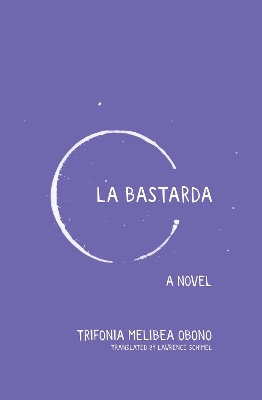Reviewed by Michael @ Knowledge Lost on
Going into La Bastarda, I did not know what to expect. I picked it up on a whim; a coming of age story about a teenage girl rebelling against the norms of Fang culture sounds too good to pass up. This is the first novel by an Equatorial Guinean woman to be translated into English and, let’s be honest, I need to read more books from Africa. One of the reasons I read books in translations is to explore cultures I have never experienced. La Bastarda did give me the opportunity to both learn about Equatorial Guinea and experience what it must be like as a queer person.
There is a lot to say about the Fang culture and I will try to include that along the way but I feel that looking at this novel from a western perspective gives us a lot to talk about. Mainly the fact that tribal culture and our own are very similar. La Bastarda follows an orphaned teen named Okomo who is under the care of her grandmother. Okomo dreams of finding her father but it is forbidden by the elders, particularly her grandfather. It is Fang custom to obey your elders. However with the help of her uncle Marcelo and a group known as the indecency girls, we follow Okomo on her journey of self-discovery.
Okomo is a bastarda, the daughter of no man. Her mother was unwed when she got pregnant. Because Okomo’s biological father did not pay the dowry to marry her mother, he holds no right to be known as a father. Okomo was an outcast, she was looked down on because she was a bastarda but she feels different in another way. According to the Fang customs, once a girl has her period she is old enough for marriage. She has constant pressure to find a husband and bring in a dowry so she can get married and start producing an heir.
There is a great exploration into masculinity within La Bastarda, Okomo wonders what makes someone a man. At first she thought a penis makes someone a man but her grandparents constantly tell her that her uncle is not a man. He is often referred to as a ‘man-woman’ and has to live in the forest away from the tribe. Okomo’s grandfather wants her uncle to do his duty and get his brother’s wife pregnant in order to hide the family’s shame. Fertility plays a great role among the Fang and if you are not fulfilling your role to the tribe you are considered subhuman. To the tribe, Marcelo is a ‘man-woman’ because he is neither married nor producing offspring. His sexuality does not matter. The teenage girls Okomo befriends are known as the indecency (later referred to as ‘woman-man’) because they have not found husbands yet.
There is a lot of sexual violence within La Bastarda, which is very important to discuss. I acknowledge that as a straight white man, that my opinion on this topic is less than ideal but I feel this needs to be discussed. It was not until Okomo was raped by the three women, that we even see Okomo considering herself a lesbian. Not to take anything away from the fact that this is rape, it reads like she only discovers her sexuality by force. Which lead to me thinking just how many people are pushed into self-discovery or are completely unware. I know my own experiences make me ignorant of this journey of discovery, so I have to turn to novels like this.
The forest became a place of freedom for Okomo who quickly fell in love. When their secrets are eventually discovered by the tribe, the punishment was that the girls are forced into marriages, as a form of corrective rape. It is sad to think that the importance of reproduction is considered more important that the wellbeing of a person but it does get you to think about western culture and just how much this is still a problem here as well. Within La Bastarda the only place of freedom is in the forest, which is interesting, considering that African mythology and our own fairy tales depict the forest of a place of evil and witchcraft. In these stories the hero journeys into the forest on a quest, in La Bastarda that quest is one of self-discovery.
Since finishing this short novel I have not been able to stop reflecting on it. La Bastarda has a lot to say, and while it will make you unconformable, it is an important message. While I viewed a lot of this novel in relation to gay and lesbian culture here in the Western world, I cannot begin to imagine the struggle for LGBTQI rights in Africa. I struggle to put into words the feelings I have here, because it is not my journey nor is it a culture I understand. I hope I was able to articulate my thoughts without offending. I believe the importance of equality and I think La Bastarda was able to highlight the struggles people face from another part of the world.
This review originally appeared on my blog; http://www.knowledgelost.org/book-reviews/genre/contemporary/la-bastarda-by-trifonia-melibea-obono/
Reading updates
- Started reading
- 24 July, 2018: Finished reading
- 24 July, 2018: Reviewed
